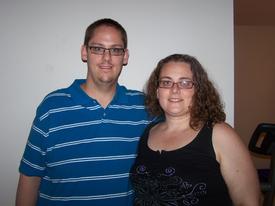Why the difference in calories burned/eating

nelson6500
Posts: 33 Member
I am fairly new to all of this. When looking at other peoples entries, I see that the amount of calories burned are vastly different than others.
Mine: burned 308 calories doing 58 minutes of "Walking, 3.5 mph, brisk pace"
Example: burned 524 calories doing 60 minutes of cardio exercises, including "Walking, 2.5 mph, leisurely pace"
I am 185, 4'11 and either walk or bike 3-4 times a week. I work in an office but walk 2 times a day outside around the parking lot. I do not include this in the 3-4 times. I am on a 1200 calorie diet.
I feel like I must be doing something wrong.
When I look at other food diaries, I see some that have 1200 in a meal. I always feel like I am starving.
Can someone explain to me the differences?
Mine: burned 308 calories doing 58 minutes of "Walking, 3.5 mph, brisk pace"
Example: burned 524 calories doing 60 minutes of cardio exercises, including "Walking, 2.5 mph, leisurely pace"
I am 185, 4'11 and either walk or bike 3-4 times a week. I work in an office but walk 2 times a day outside around the parking lot. I do not include this in the 3-4 times. I am on a 1200 calorie diet.
I feel like I must be doing something wrong.
When I look at other food diaries, I see some that have 1200 in a meal. I always feel like I am starving.
Can someone explain to me the differences?
0
Replies
-
I think its one of two things:
1) People at different weights do burn different calories
2) A lot of people dont have a HRM and use the webpage to estimate calories burned and a lot of times sadly overestimate it.0 -
The including mean that was one of the things they did in that 60 minutes, they may also have ran at 7.0 for 30 of those. If you are using the site to get cals burned it is based on your age, weight, gender, activity, duration. So if any or all of these inputs are different the outcome in cals burned will be different.0
-
The taller you are and the more you weigh...the more you burn. Me for example would only burn about 105 calories walking about 60 min0
-
People that are heavier will burn more calories then a smaller person.. I can walk with my mom and burn 400 and she will only burn half of that.0
-
The amount of calories burned during exercise can vary based on your weight. Also, some people may be recording the amount burned from the machine they are using instead of the values given by mfp.
If you feel like you are starving - i would take a look at your protein. If you are eating more protein, you should feel fuller.
Good luck!0 -
I'm no expert by any means but I know that when it lists an exercise and using the words "including" it means that the person has listed multiple exercises that added up to a total of 60 minutes with 524 total calories burned and it lists either the first or last (can't remember) exercise entered. So the person may have started with a 10 minute walk and then kicked it up to a 50 minute run (or vice versa). Usually their diary will list out the specific details.0
-
The amount of calories burned depends on the intensity of the workout, and your current condition (weight, height, age). You will rarely get the same calories burned as someone else unless of course, so you shouldn't gage your efforts that way.
Also, just because 1200 sounds like a good round number, it doesn't necessarily mean that should be your number of calories. That also depends on your current weight, age, activity level, and your weight loss goals.
I found that MFP gives most people the generic 1200 calories. May want to do a little more research, that way you could change your numbers if necessary.0 -
MFP actually goes off of each persons specifics. My friend and I work out together and she burns more calories than I do, but she weighs more than I do. The more weight I lose the less calories I burn in a workout.
Now, about the calories, that is set up thru your goals. If you are feeling hungry all the time, you might want to think about upping your caloric intake on your goals. I had mine set to loose 1 lb a week and I'm not very active, so my goal was 1230 a day. I really struggled with that and I lost a lot more than 1 lb a week, so I changed it to 1/2 lb a week and can eat over 1400 calories in a day, and I am still consistently loosing more than 1lb a week, but I have also upped my work outs.
Hope this helped!0 -
"Hello Folks,
So often people personal message me asking me if I think their calories are correct. It seems that people think there is some magical formula that only a very few can figure out. I see so many people on here just popping in numbers and following them heedless of what the numbers mean. I feel it's ULTRA important to know why MFP (and me, and a few others) gives you certain numbers. To that end I will try to empower YOU to be able to understand the basics about calories, calorie deficits, and why we recommend eating exercise calories. With this knowledge you should be able to easily figure out what your calories should be at for reasonable, healthy weight loss. So without further ado, lets get started.
1st things first, a few givens must be stated:
-Everyone's body is slightly different. ALWAYS keep in mind your numbers may not be exactly what MFP thinks simply because everyone's bodies all burn energy at a different rate. Tweaking may be needed.
- MFP's goals wizard is a "dumb" tool. That means it doesn't care whether a specific goal is healthy and/or right for you, it just subtracts the goal deficit from projected maintenance calories. This means that even if you shouldn't be trying for a 2 lb a week loss, MFP won't care, it will still try to help you get there.
-1200 calories is a generic number. It's not right for everyone. It's a baseline minimum given out as a floor by MFP based on prior research by the medical community. NOT everyone will need a minimum of 1200, very small people can go under, and bigger people need more.
OK with those facts firmly set in your mind (please go back and re-read the givens until you have them firmly planted in your skull!), we can continue. Figuring out your perfect deficit isn't magic, it's a few simple formula's base on some basic, worldwide standards, and generally with slight modefication, will work for just about anyone who (besides weight) is generally healthy.
Here's what you need:
Height, weight, age, activity level, sex
NOTE: activity level isn't as mysterious as it sounds. If you have a desk job, and do very little walking throughout the day and don't really perform any sports or physical activities, then you are sedentary, if you do some walking every day (or at least 4 days a week) or other light activity for at least 30 minutes cumulative at least 4 times a week, you are lightly active. If you do 60 minutes of light activity 5 days a week or do some kind of sport that requires walking or light jogging (say swimming or mailman or warehouse employee) then you are active, If you do a physically demanding activity (one that makes you sweat) for 4 days a week or more and for more than 1 hour a day, you are very active (like a coach that runs drills or you play volleyball). When in doubt, go down 1 level, you'd rather burn more than you think than less.
With all these numbers you can generate your BMI. Now I realize BMI is flawed, but for what we're doing it's good enough. After years on here, and doing lots and lots of research, I've been able to associate general BMI ranges with approximate goal levels. This works for about 80 to 85% of people out there (there's always a few that are outside the curve).
So now we can figure out where your goal should be.
Go to the tools section and figure out your BMI:
Generally someone with a BMI over 32 can do a 1000 calorie a day (2 lbs a week) deficit
With a BMI of 30 to 32 a deficit of 750 calories is generally correct (about 1.5 lbs a week)
With a BMI of 28 to 30 a deficit of 500 calories is about right (about 1 lb a week)
With a BMI of 26 to 28 a deficit of about 300 calories is perfect (about 1/2 lb a week)
and below 26... well this is where we get fuzzy. See now you're no longer talking about being overweight, so while it's still ok to have a small deficit, you really should shift your focus more towards muscle building, and reducing fat. This means it is EXTRA important to eat your exercise calories as your body needs to KNOW it's ok to burn fat stores, and the only way it will know is if you keep giving it the calories it needs to not enter the famine response (starvation mode).
With this quick guide you can figure out your goal rather easily. I know many people will say "I can't eat my exercise calories, I gain weight when I do". Well I have news for you, that's not correct. I submit this, if you eat your exercise calories and gain weight 1 of 3 things happened:
1 you were previously in starvation mode, and you upped your calories, and had an immediate weight gain, that's normal, to be expected, and necessary to get your body on track. Give it a month, that will stop, and you, once again, will begin to lose, but this time, in a healthy manner.
2 you incorrectly calculated something, either your exercise calories, your calorie intake, or you put in to large of a goal. Go back and check all your numbers.
3 you haven't given it enough time to work. This site promotes HEALTHY weight loss people. Healthy weight loss doesn't happen in days or weeks, it takes months and years. Each change you make in how you eat needs a month or more to work, be patient, give it time. It will happen.
And to everyone who has a trainer that doesn't agree with eating your exercise calories. I also submit this: In 90% of the cases (and I have talked to a LOT of trainers about this exact topic) they actually DO agree with this method, you just explained it wrong.
Just saying to a trainer "should I eat my exercise calories?" isn't enough, you have to explain to them that MFP already generates a deficit prior to any exercise, therefore the deficit will remain whether you exercise or not. Once you give them that idea, and you are relatively sure they understand the concept then I'll bet they change their tune.
I hope this helps, it's pretty straight forward if you've been here a while, and to you new guys, I recommend going to the message boards link, clicking on the "general diet and weight loss" area, and clicking on those first few posts that have the little mouse trap next to them, they are sticky and will always be there, and are a wealth of knowledge about this site, exercise calories, starvation mode...etc.
"0 -
I have been loosing weight for long enough to notice that the Wii Fit is giving me fewer calories for the same exercises that it gave me when I started. (Punished for my success:grumble: ) It is logical the less weight you have to move around the less fuel you need to move it.0
-
Your height, gender, age and current weight all factor into how many calories you're burning when you exercise. Heavier people burn more because they have to work harder to do the same activity. As they lose weight, they have to increase intensity or exercise longer to get the same burn.
As for your calorie settings women's will be lower than men's as a general rule - men typically have more muscle due to the testosterone in their bodies and run at a higher BMR, which is how many calories you would burn if you do NOTHING all day. Your BMR is also determined by your gender, age and current weight and is the foundation for the total energy expenditure you have in a day. As you lose weight, your BMR will drop, so the caloric intake recommendations drop as well.
If you aren't getting enough to eat, you have a couple of options - exercise to add calories to your allowance, lower the amount of weight you're targeting to lose (e.g. Switch from 1-1/2 pounds per week to 1 pound per week). It also REALLY helps to make sure you're getting adequate protein (it sticks with you longer) and eat foods with a high fiber content. Drinking water at the first sign of hunger can also stave off hunger signals if you're not due for a meal yet.
So basically, we're all in different places and situations, but the basic formula is still applied to everyone equally.0 -
I just saw someone else post this same exact thing and i'm wondering where this came from? do you have a source for this? thanks
 "Hello Folks,
"Hello Folks,
So now we can figure out where your goal should be.
Go to the tools section and figure out your BMI:
Generally someone with a BMI over 32 can do a 1000 calorie a day (2 lbs a week) deficit
With a BMI of 30 to 32 a deficit of 750 calories is generally correct (about 1.5 lbs a week)
With a BMI of 28 to 30 a deficit of 500 calories is about right (about 1 lb a week)
With a BMI of 26 to 28 a deficit of about 300 calories is perfect (about 1/2 lb a week)
and below 26... well this is where we get fuzzy. See now you're no longer talking about being overweight, so while it's still ok to have a small deficit, you really should shift your focus more towards muscle building, and reducing fat. This means it is EXTRA important to eat your exercise calories as your body needs to KNOW it's ok to burn fat stores, and the only way it will know is if you keep giving it the calories it needs to not enter the famine response (starvation mode).
"0 -
As far as the burning of calories goes, if you do more than one type of cardio workout they don't list both. So in this case the person burned 524 doing 60 min of exercises she could have walked at 2.5 mph for 15 min and swam for 45. They just don't show both of them. I know its confusing at first. I noticed that when I did walking and aerobics it added the minutes together and only showed the walking. I wouldn't worry too much about that.
1200 calories a day doesn't seem like a lot. What did you put in when you did the amount of weight each week you want to lose? I am currently at 235 and put in that I would like to lose 1.5 lbs a week which is 1445. However, if I exercise I get to eat more. When you track your exercise on MFP, the amount of calories you have remaining will changed based on the amount of calories burned during exercise so keep track of that. If you burn 300 or so through the day, that is an extra 300 a day you can eat. I would certainly put in all of your exercise.
I know that the calorie deficit is frustrating. I have a hard time sometimes staying under my calorie allotment. I don't beat myself up if I go over, I just try and work it off or start fresh the next day. Good luck0
This discussion has been closed.
Categories
- All Categories
- 1.4M Health, Wellness and Goals
- 398.1K Introduce Yourself
- 44.7K Getting Started
- 261K Health and Weight Loss
- 176.4K Food and Nutrition
- 47.7K Recipes
- 233K Fitness and Exercise
- 462 Sleep, Mindfulness and Overall Wellness
- 6.5K Goal: Maintaining Weight
- 8.7K Goal: Gaining Weight and Body Building
- 153.5K Motivation and Support
- 8.4K Challenges
- 1.4K Debate Club
- 96.5K Chit-Chat
- 2.6K Fun and Games
- 4.8K MyFitnessPal Information
- 12 News and Announcements
- 21 MyFitnessPal Academy
- 1.5K Feature Suggestions and Ideas
- 3.2K MyFitnessPal Tech Support Questions










